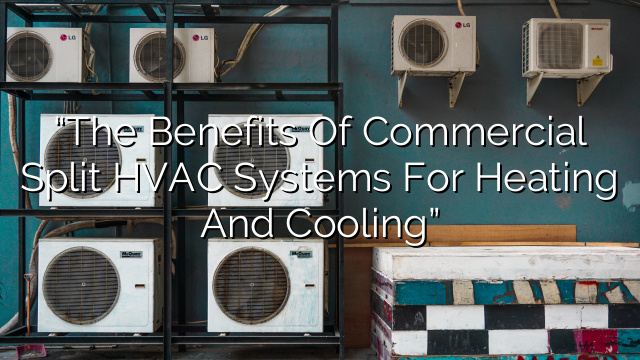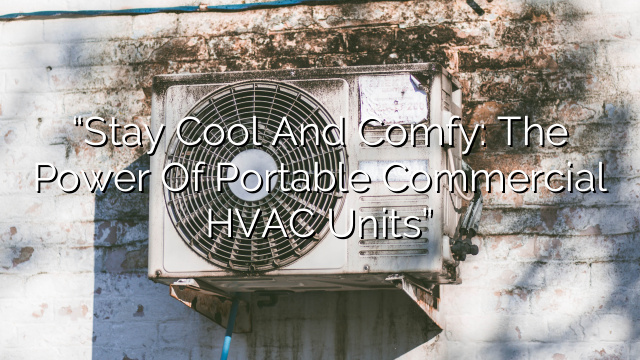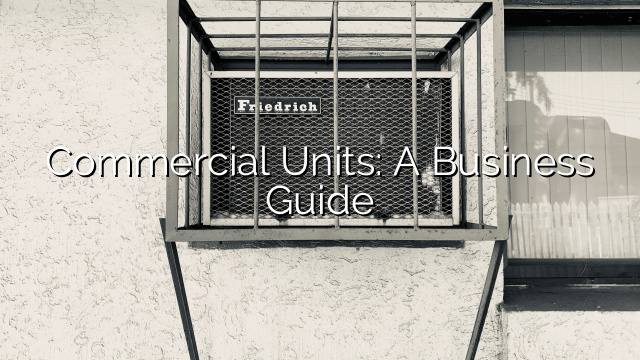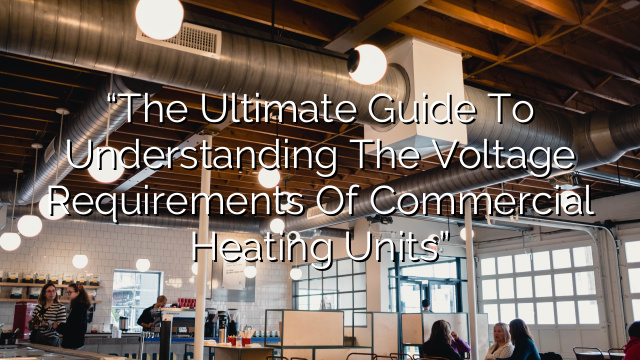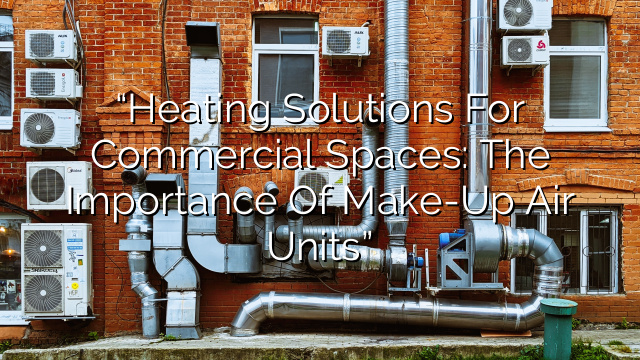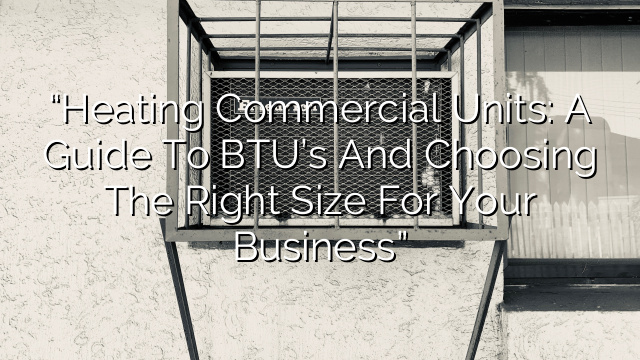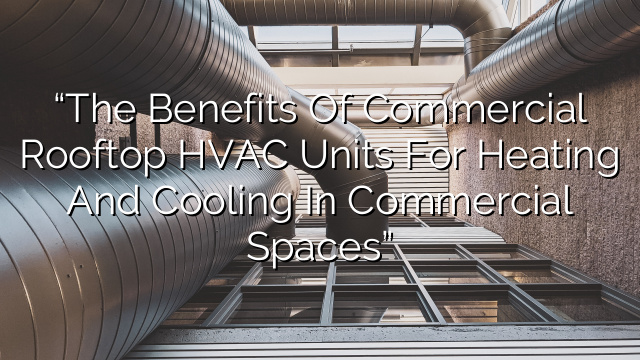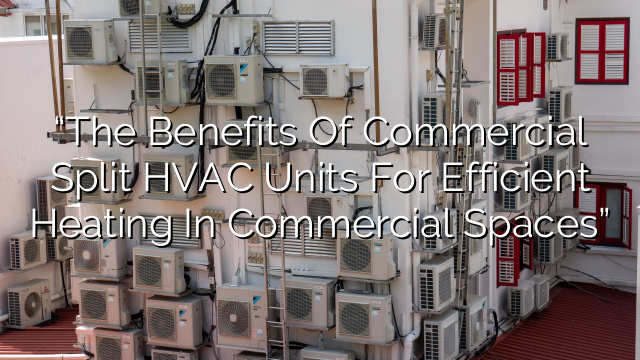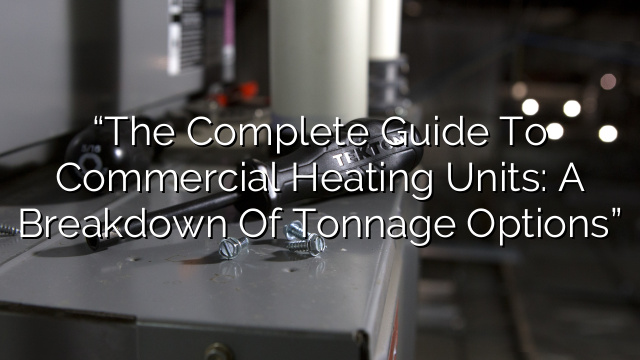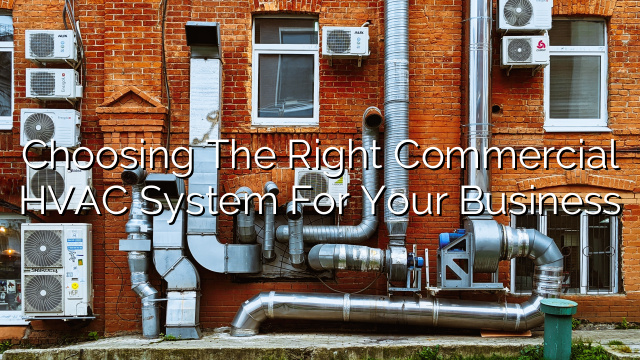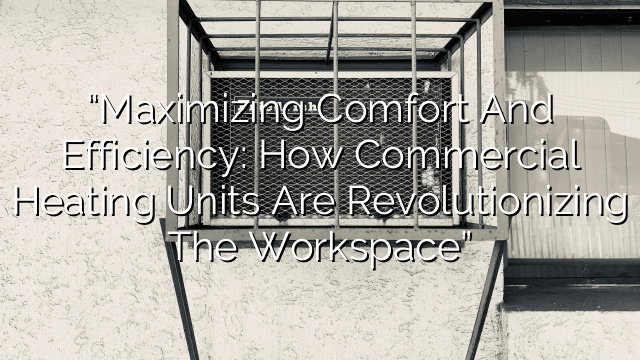Introduction
When it comes to heating and cooling large commercial spaces, a reliable and efficient HVAC system is essential. Commercial split HVAC systems are a popular choice among business owners for their ability to provide optimal comfort and climate control. In this blog post, we will explore the benefits of commercial split HVAC systems for heating and cooling in commercial units.
What is a Commercial Split HVAC System?
A commercial split HVAC system consists of two main components: an indoor unit and an outdoor unit. The indoor unit is responsible for distributing conditioned air throughout the commercial space, while the outdoor unit houses the compressor and condensing unit. These two units are connected by refrigerant lines that carry the heat exchange process.
With a commercial split HVAC system, the indoor and outdoor units are separate, which eliminates the need for ductwork. This makes them an ideal choice for commercial units with limited space or where retrofitting ductwork is not possible or practical.
1. Energy Efficiency
Commercial split HVAC systems are known for their energy efficiency. These systems allow for individual temperature control of each unit, which means you can heat or cool only the areas that are in use. This can result in significant energy savings and lower utility bills.
In addition, commercial split HVAC systems use advanced technology and features such as programmable thermostats and variable speed compressors. These features help optimize energy consumption and provide precise temperature control.
2. Zoning Flexibility
Commercial split HVAC systems offer zoning flexibility, allowing you to divide your commercial space into different zones based on their heating and cooling needs. Each zone can have its own thermostat, allowing for individual temperature control. This flexibility ensures that each area is comfortable and saves energy by not heating or cooling unoccupied zones.
For example, in an office building, you can have different temperature settings for the conference rooms, individual offices, and common areas, ensuring optimal comfort for everyone.
3. Improved Indoor Air Quality
Commercial split HVAC systems are equipped with advanced air filtration systems that help improve indoor air quality. These systems can capture and remove impurities such as dust, pollen, and bacteria, improving the overall air quality in your commercial space.
Improved indoor air quality can have a positive impact on the health and productivity of your employees and customers. It can also reduce the risk of respiratory problems and allergies.
4. Quiet Operation
Commercial split HVAC systems are designed to operate quietly, making them an excellent choice for commercial units where noise can be a concern, such as restaurants, offices, and retail stores.
These systems use advanced technology to reduce noise levels, ensuring a comfortable working or shopping environment for employees and customers.
5. Easy Installation and Maintenance
Commercial split HVAC systems are relatively easy to install compared to other HVAC systems. As the name suggests, the system is split into two units, which simplifies the installation process. In most cases, only a small hole is required to connect the indoor and outdoor units, eliminating the need for extensive renovations or modifications.
In terms of maintenance, commercial split HVAC systems are also easier to maintain. Both the indoor and outdoor units are easily accessible, making cleaning and servicing more convenient. Regular maintenance can help prolong the lifespan of the system and ensure optimal performance.
Frequently Asked Questions
- Are commercial split HVAC systems suitable for all commercial units?
- Commercial split HVAC systems are suitable for a variety of commercial units, including offices, retail stores, restaurants, and small businesses. However, the suitability may depend on factors such as the size of the unit, the layout, and the specific heating and cooling requirements.
- Can commercial split HVAC systems provide both heating and cooling?
- Yes, commercial split HVAC systems are designed to provide both heating and cooling. They can switch between heating and cooling modes depending on the desired temperature settings.
- Do commercial split HVAC systems require regular maintenance?
- Yes, like any HVAC system, regular maintenance is important to ensure optimal performance and energy efficiency. It is recommended to have a professional technician inspect and service your commercial split HVAC system at least once a year.
- How long do commercial split HVAC systems typically last?
- The lifespan of a commercial split HVAC system can vary depending on factors such as usage, maintenance, and the quality of the system. On average, these systems can last between 15 to 20 years with proper care and maintenance.
- Are commercial split HVAC systems eligible for energy efficiency incentives?
- Yes, many commercial split HVAC systems are eligible for energy efficiency incentives offered by local, state, or federal governments. These incentives can help offset the initial cost of the system and make it more affordable for business owners.
Conclusion
Commercial split HVAC systems offer a range of benefits for heating and cooling in commercial units. From energy efficiency and zoning flexibility to improved indoor air quality and quiet operation, these systems are a reliable and cost-effective choice. If you are looking to upgrade or install a new HVAC system for your commercial space, consider the many advantages that commercial split HVAC systems have to offer.

